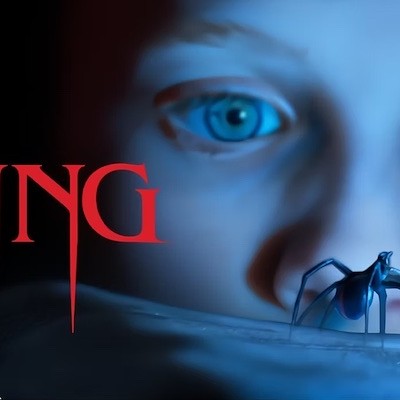"Remedial Chaos Theory" could be the most experimental and rule-breaking episode of Community yet. The series' excursions into the wild hills outside safe sitcom territory have always been amazing, but every one of those stories was ostensibly set in the "real" world of Greendale. The genre mash-ups of the paintball episodes were like cartoons come to life, but they still actually happened, you know? But last night, the show played with cause and effect in dramatically new ways as it explored alternate timelines in six different iterations. Each one was, for its duration, the real world, and we got to see weird and sad and hilarious and insane consequences play out, and they all mattered. The narrative didn't hint at hypotheticals or joke about roads not taken; it walked with us down those roads. We didn't even know until the end which reality would be true.
That's kind of amazing, when you think about it. Community is a geek-friendly show, but it's still a comedy. Abed loves sci-fi, but the show he's on isn't in the science fiction realm. The series is steeped in nerdy references, but it's not itself one of those nerdy shows. But this week, we actually got to play around with time travel and parallel worlds and the headache that is multiversal causality. And on top of that -- on top of the crazy and daring and consistently pleasing experimentation -- we got a nonstop blast of great jokes, hilarious conflict, heartbreaking pathos, and a stunning amount of insight into the group dynamic. "Remedial Chaos Theory" had some of the best comic set pieces the show's seen in ages, and it was also a rock-solid bottle episode that never felt cramped or limited by its space or structure.
One of the (many) ways the episode stayed nicely locked into its conceit of repeated snippets of time and dialogue was the actual recycled use of certain clips. What I mean is, we didn't just see the characters say the same thing over and over in different ways; we saw the exact same pieces of film across multiple timelines. Director Jeff Melman never went out of his way to call attention to it, either, which made the gimmick feel more organic. Abed's warning to Jeff about the multiple timelines (complete with dramatic flourish of his hands) appeared many times over, as did many other moments, and it helped cement the notion that so many of these events were identical across all timelines, no matter what happened. It was a smart way to unify the stories.
Of those many stories, only one really went for the jugular, with Pierce getting shot, Jeff losing an arm, and the rest of the gang sacrificing their physical or mental health for each other. But they all revealed something: Annie's got a gun (ha), Pierce is jealous of Troy and Abed, there are multiple relationships at various stages of development, etc. While nothing else could equal the delirious breakdown of watching Pierce take a bullet while Troy screamed at a burning troll, it was fantastic to see little personality quirks grow and fade in different worlds. (Britta's pot habit will probably make a comeback.)
Because every timeline, every possible life, was all about one thing: growing up. The study group has been its own awkward family unit for years now, and though they've come out of the battles of last year stronger and closer than ever, they all still know that change is inevitable. Sure, it was a goofy party episode that let a few characters blow off some steam depending on how the dice determined their fate, but it was also an opportunity to see Jeff and Annie deal realistically with their weird situation, and to see Troy and Britta cautiously explore their own. Pierce had to learn to let go, as did Shirley. Jeff remembered to forgive them for not being as cool as he thinks they should be.
Chaos theory is the study of the unpredictable, which is something the Greendale students know about all too well. But the first and final timeline, the real one, allowed them to find something predictable and understandable in their own relationships. Things will never be perfect; they'll never even be close. But they can, every now and then, work out just fine.
Scattered thoughts:
• I say that this show is geek-friendly because it's geek-friendly in a real way. It doesn't pander or go broad, and it absolutely refuses to rely on hacky stereotypes. Abed's the most culturally recognizable "geek," but every character -- and the series itself -- relies for communication on the rapid blend of wit and reference used by pretty much everyone these days, geeks included. Compare it with The Big Bang Theory, a show with a conception of geeks that's about as insightful and visually accurate as the nerds on Saved By the Bell, and you'll start to see how much smarter and more interested Community is.
• "Chop busted, fellow adult. Chop busted."
• Troy and Abed's apartment number, 303, is the episode's production code.
• "Call it Yahtzee all you want. Everyone knows it's Puerto Rican chess."
• "Encarta it!"





